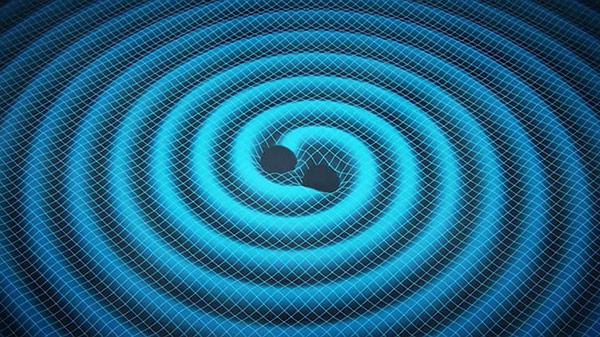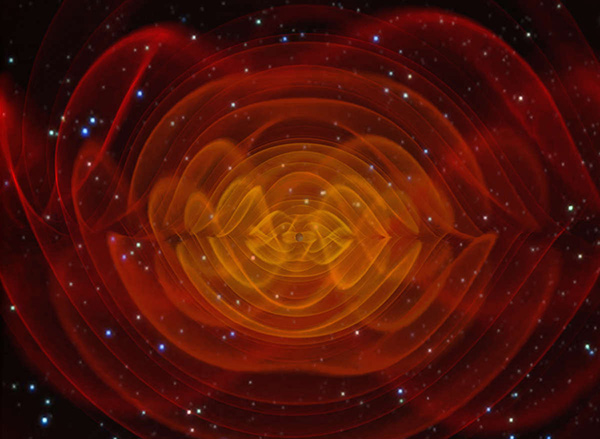 |
|
Visualization - Gravitational waves generated by a binary system. [Photo/NASA] |
China's domestic gravitational wave research project "Tianqin," at Sun Yat-sen University has been awaiting government approval since July, according to Li Miao, dean of the University's institute of astronomy and space science in south China's Guangdong Province.
At an estimated cost of 15 billion yuan ($2.3 billion) Tianqin will be carried out in four stages over the next 15 to 20 years, ultimately launching three high-orbit satellites to detect the waves.
Chen Yanbei of LIGO, said Tianqin is different from the research by the U.S. ground-based observatory in that it will observe the waves from space.
"Tianqin is likely to collect better information, as a larger black hole may be detected from space than the one detected from the ground," said Chen.
 |
|
NASA researchers simulated the gravitational waves that would be produced when two black holes merged. [Photo/NASA] |
Sun Yat-sen University is willing to cooperate with other institutions,and has plans for 15,000 square meters of observatory and laboratory on Fenghuang Mountain in Zhuhai City, Guangdong.
Another domestic gravitational wave project "Ali," named after the Chinese Academy of Sciences (CAS) observatory in Ali, Tibet, and led by the CAS institute of high energy physics, has totally different objectives -- detecting the first tremors of the Big Bang, primordial gravitational waves.
According to Zhang Xinmin of CAS, at high altitude and with good weather, Ali is regarded as the fourth best site on the globe to detect primordial waves.
"Ali will be much cheaper. The first phase will cost around 100 million yuan and results are expected in five years," he said.
China lags behind in gravitational wave research and the team is seeking international cooperation and foreign specialists, said Wang Yifang, head of the CAS high-energy physics institute.
